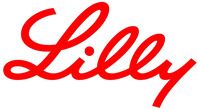Article
Lebrikizumab Effective in Patients with Moderate-to-Severe Atopic Dermatitis
Author(s):
Recent data from phase 3 clinical trials of the antibody shows significant skin clearance and itch in people with atopic dermatitis.

Novel monoclonal antibody lebrikizumab showed significant improvements in over half the patient population with moderate-to-severe atopic dermatitis in Eli Lilly and Company’s ADvocate 1 and ADvocate 2 phase 3 clinical trials.
Over half the patient population had at least 75% skin clearance.
The antibody, which binds soluble IL-13 with high affinity, was considered to have high bioavailability, a long half-life, and the ability to block IL-13 signaling.
Due to the recent trial data, the US Food and Drug Administration (FDA) granted Fast Track designation to lebrikizumab for moderate-to-severe AD in adult and adolescent patients aged 12 to <18 years of age and weighing at least 40 kg.
ADvocate 1 and ADvocate 2 are ongoing 52-week randomized, double-blind, placebo-controlled, parallel-group, phase 3 studies designed to evaluate lebrikizumab as monotherapy in adult and adolescent patients (aged 12 to less than 18 years of age and weighing at least 40 kg) with moderate-to-severe AD.
The primary efficacy endpoints were assessed at 16 weeks in the 2 ongoing studies and were measured by an Investigator Global Assessment (IGA) score of clear (0) or almost clear (1) skin with a reduction of at least 2 points from baseline at Week 16 and at least a 75% or greater change from baseline in their Eczema Area and Severity Index (EASI) score at Week 16.
Key secondary endpoints were also achieved versus placebo in patients with AD, including early onset in skin clearance and itch relief, improvement in interference of itch on sleep and quality of life.
Adverse events were consistent with that of the previous phase 2 lebrikizumab study in AD, with the most common AEs including conjunctivitis, nasopharyngitis and headache for lebrikizumab-treated patients. Discontinuations due to AEs were similar in the lebrikizumab group (1.4%) compared to placebo (1.7%).
"We understand the needs of people in the AD community worldwide and are aware that many are still in need of new treatment options despite available medicines," said Lotus Mallbris, MD, PhD, vice president of immunology development at Lilly.
"Lebrikizumab is a specific inhibitor of IL-13 that offers robust binding affinity and high bioavailability," Mallbris said. "Today's results show that the inhibition of IL-13 cytokine plays a main role in AD treatment, as demonstrated by more than half of the patients achieving at least 75% clearance to total clearance on lebrikizumab monotherapy."





